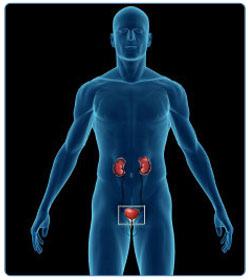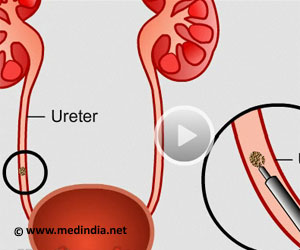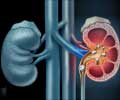Symptoms of stone in the kidney or ureter
Stones in the kidney or ureter do not cause any symptoms until and unless they obstruct the urinary passage. The nature and the location of the pain can vary from person to person depending upon the size of the stone, the position of the stone within the urinary tract, and the damage it causes to the urinary system.
It should be however remembered that the size of the stone does not interfere with the severity of the pain. For example even very small stones in the ureter can cause lot of pain whereas large stones which develop in the kidney or urinary bladder may not produce pain at all, or may be associated with a dull ache only.
Stones in the kidney may produce a deep, dull ache in the loin or back which might be mild, moderate or severe. Some stones may cause a dull or sharp pain in the abdomen below the ribs. It may be present throughout the day and it is difficult to be ignored.
Stones which move down into the ureter (ie) the tube which carries urine away from the kidney cause lot of pain. The pain is usually sudden and might be so severe that the patient is not able to stay in one place for a short time. They move about from one place to another place in an attempt to feel comfortable. The pain may radiate from the loin to the groin. It might be associated with nausea or vomiting. The pain may also be felt in the testicle in males or vulva in females. Stones which are in the lower portion of the ureter may be associated with an increase in urinary frequency (ie) the patient has to visit the toilet to empty urine very frequently. It may also be associated with a sudden and intense desire to urinate where the patient has to rush to the toilet to pass urine. Burning sensation or pain accompanying urination is frequently present. If the stone is sharp, it might produce Haematuria (ie). blood in the urine . Most patients get alarmed by this and it is the reason why the patient comes for consultation to the doctor.
If urinary tract infection is present, there might be intermittent attacks of fever associated with pain.In some cases, the patient may not have any symptoms at all. They might be diagnosed to have a urinary stone when getting a routine health check up done.






















